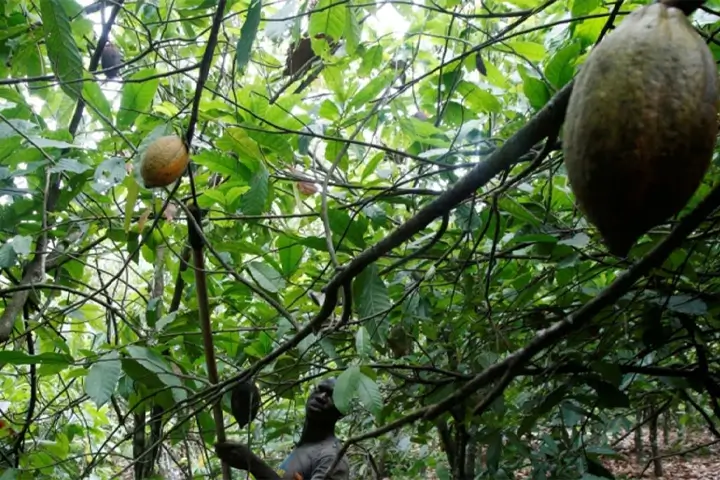
Nestlé, a global leader in the food and beverage industry, has taken a momentous step towards restoring forests and uplifting local communities in Ivory Coast. This ambitious initiative seeks to tackle the environmental challenges associated with cocoa production while making a positive impact on the lives of cocoa farmers and their families.
The project involves the protection and restoration of the classified Cavally Forest and is a collaborative effort between the Swiss Federal Administration (SECO), the Ivorian Ministry of Water and Forests (MINEF), Nestlé, Touton, Cocoasource, and Earthworm Foundation (EF). This partnership represents a total investment of CHF 4 million, equivalent to XOF 2.7 billion, and goes beyond mere preservation of the classified Cavally Forest.
At the core of this collaboration is the shared goal of enhancing the resilience of communities in the forest’s peripheral zone while also improving the transparency and traceability of the cocoa and rubber supply chain.
Ivory Coast holds the distinction of being the world’s largest cocoa producer, with the cocoa industry forming a crucial pillar of the country’s economy. However, the expansion of cocoa farming over the years has had a severe impact on the country’s pristine forests, leading to extensive deforestation and habitat destruction for wildlife. This raised serious concerns about the sustainability of cocoa production and its broader impact on the environment and local communities.
Over the last six decades, Ivory Coast has lost a significant portion of its forest cover, with the area of its forests shrinking from 16 million to 2.97 million hectares between 1960 and 2021, primarily due to small-scale farming.
The classified Cavally Forest is one of the last remaining dense forests in the country and is a critical biodiversity hotspot threatened by rampant deforestation.
In response to these pressing challenges, Nestlé took a proactive approach by collaborating with various stakeholders, including government bodies, non-governmental organizations, and local communities, to devise a comprehensive strategy for forest restoration and the promotion of sustainable cocoa farming practices.
This new partnership builds upon the foundation laid by Nestlé’s initial three-year project, which has been funded by the company and is set to run until the end of June 2023. The first phase of the Cavally project yielded encouraging results, including a significant reduction in deforestation, the natural regeneration of 7,000 hectares of forest, and the reforestation of nearly 1,500 hectares.
Additionally, the project has had a positive impact on the economic and social resilience of local communities, benefiting more than 1,400 individuals financially.
Bastien Sachet, CEO of the Earthworm Foundation, the organization spearheading the project’s implementation, commented on the multifaceted nature of the deforestation problem in the area. He highlighted the challenges in controlling such a vast region and the attractiveness of the forest for communities grappling with economic difficulties. To combat deforestation effectively, a collective approach that creates value for producers and rural communities is essential.
The commitment to combating cocoa-related deforestation extends beyond the Ivory Coast. Switzerland, in particular, has made it a priority and has pledged to increase its investments in primary sourcing regions. Monica Rubiolo, Head of Trade Promotion at the Swiss State Secretariat for Economic Affairs (SECO), explained that the Swiss government is actively engaged in the Swiss Platform for Sustainable Cocoa (SWISSCO).
Through providing financial support for specific projects, Switzerland aims to actively contribute to the establishment of more sustainable supply chains, working closely with the private sector, civil society, and governments in cocoa-producing countries.
In conclusion, Nestlé’s collaboration with project partners to support the Ivorian cocoa industry represents a significant step forward in addressing environmental challenges and promoting sustainable practices. By investing in forest restoration and empowering local communities, this initiative holds the potential to safeguard Ivory Coast’s natural heritage while securing a brighter future for cocoa farmers and the entire industry. Such collective efforts, backed by government support and active engagement with various stakeholders, serve as a shining example of corporate responsibility and the pursuit of a sustainable and equitable future for all.
Stay updated with the latest farming tips and agriculture industry news from Africa by subscribing to our newsletter. Don’t miss out on valuable insights and updates. Follow us on Twitter, LinkedIn, and Facebook to join our farming community and stay connected with us.



















